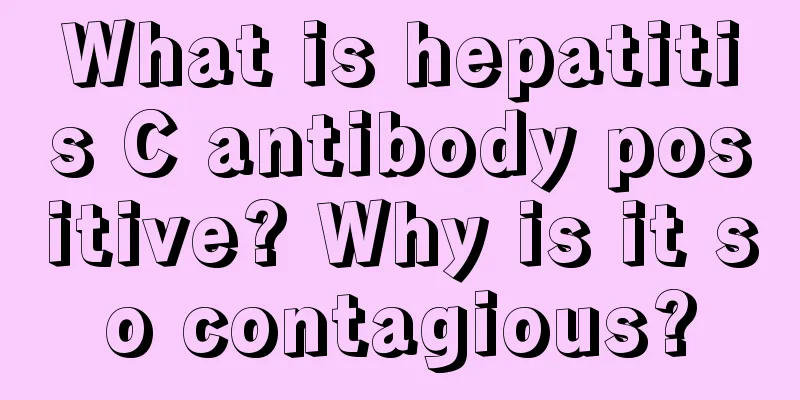Comparison of three methods for treating colon cancer

|
There are three common methods for treating colon cancer: immunotherapy, Chinese medicine, and chemotherapy. Chemotherapy for patients whose tumors cannot be removed can alleviate symptoms and control tumor growth, but the effect is poor and short-lived. If the patient is in poor general condition, the side effects are significant and the condition is aggravated, so it is not suitable for use. 1. Immunotherapy It can improve the patient's anti-tumor ability. It has developed rapidly in recent years. Interferon, interleukin, transfer factor, tumor necrosis factor, etc. have been gradually and widely used. They can not only improve the patient's immune ability, but also cooperate with chemotherapy. 2. Traditional Chinese medicine treatment It can improve symptoms, enhance the body's disease resistance, and reduce the side effects of radiotherapy and chemotherapy. Some Chinese medicines have direct anti-cancer effects, such as Oldenlandia diffusa, Scutellaria barbata, Trichosanthes kirilowii, Solanum nigrum, etc. Ganoderma lucidum preparations can significantly improve the patient's immune function. Currently, there is only one Ganoderma lucidum medicine with a national medicine approval number on the market, "Shuangling Guben San". When using the medicine, you can take both syndrome differentiation and disease differentiation into consideration, and add medicines for clearing away heat and detoxifying, promoting blood circulation, nourishing yin and blood, removing phlegm and dispersing nodules, and regulating the spleen and stomach. 3. Chemotherapy Patients after surgery can generally use 2 to 3 courses of chemotherapy within one to one and a half years. The commonly used drugs are mainly 5-fluorouracil (5-FU), which can also be combined with mitomycin, cyclophosphamide, etc. The total amount of 5-FU can be 7 to 10 grams per course. It can be administered orally or intravenously. It is best to add it to glucose solution and drip it, 250 mg each time, once a day or every other day. If the reaction is large, such as nausea, loss of appetite, weakness, decreased white blood cell and platelet counts, etc., the dosage can be reduced each time, or the interval can be increased. The drug can be stopped in time when bone marrow suppression is obvious. The gastrointestinal reaction of oral administration is greater than that of intravenous administration, but the bone marrow suppression reaction is mild. During the medication, supportive treatment must be paid attention to, and drugs that reduce side effects should be used. Chemotherapy for patients whose tumors cannot be removed can alleviate symptoms and control tumor growth, but the effect is poor and short-lived. If the patient's general condition is poor, the side effects are significant and the condition is aggravated. It is not suitable for use. If you have any questions, you can also consult our online consulting experts Colorectal cancer: http://www..com.cn/zhongliu/dca/ |
<<: What are the specific symptoms of lung cancer?
>>: Key points for home care for colon cancer
Recommend
What are the drugs against uterine cancer
Using drugs to treat cancer is now the most popul...
What should I do if my legs become swollen after standing for a long time at work?
Lower limb edema is a very common phenomenon in l...
Tips on how to get rid of dandruff and relieve itching
People's hair usually produces some necrotic ...
How to choose radiation protection clothing
When women are pregnant, they should not only pay...
How long can you live with advanced colon cancer?
How long can you live with advanced colorectal ca...
How to wash nail polish off clothes, 6 tips
Women who love beauty always have strict requirem...
What to do if thyroid cancer spreads to lymph nodes
Thyroid cancer spreads to the lymph nodes, which ...
What is the best way to treat left ovarian teratoma?
The treatment effect of left ovarian teratoma dep...
How can women discover their own symptoms of cervical cancer?
Discovering the symptoms of early cervical cancer...
How long can frozen sea crabs be preserved
Many people like to eat crabs in life, but someti...
How can I improve my severely oily hair?
Some people secrete more oil. If they face the co...
How harmful is long-term use of hormone ointments to the skin?
Hormonal ointments are often used to treat some s...
Unexplained itching in the body
Generally speaking, if your body itches for no re...
What should you eat if you have liver cancer? 5 types of food are essential for liver cancer patients
Liver cancer is not unfamiliar to us. It mainly r...
It turns out there are three types of pericarditis diagnosis
Pericarditis is a relatively common disease in da...









